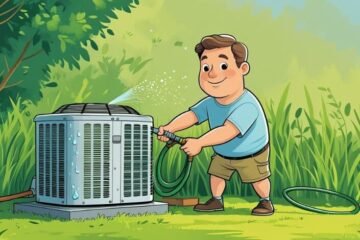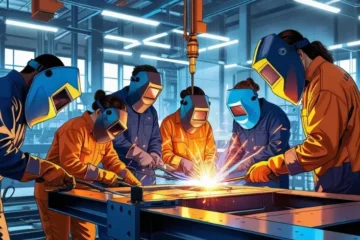Get the Most Out of Your CNC Milling Machine With Thermal Expansion

CNC milling machine
If you’ve been considering taking on complex projects with your CNC milling machine, it’s important to understand how thermal expansion can affect the accuracy of the workpiece.
Thermal expansion is an unavoidable physical phenomenon that occurs when materials are exposed to changes in temperature, affecting the size and shape of a workpiece.
Taking a few precautionary steps before starting any machining process will ensure that you get the most consistent results from your CNC milling machine every time.
In this blog post, we’ll explore what thermal expansion is, why it matters for precision machining applications with CNC milling machinery, and suggestions for properly preparing each piece to avoid unnecessary rework or waste due to inaccurate measurements.
Understanding Thermal Expansion and Its Impact on CNC Milling
Thermal expansion may seem like a small or insignificant factor to consider when it comes to CNC milling, but it can actually have a significant impact on the outcome of your projects. Simply put, thermal expansion refers to the way in which a material expands when it is heated.
This can be particularly problematic in CNC milling, as the high temperatures generated by the process can cause the materials to shift or warp, resulting in inaccurate cuts or even equipment damage.
By understanding the principles of thermal expansion and taking steps to mitigate its effects, you can ensure that your CNC milling projects are accurate, efficient, and safe.
Different Ways to Prevent Warping Due to Thermal Expansion
Thermal expansion is a common problem, especially when dealing with materials that are sensitive to temperature changes. Warping is a result of thermal expansion, which can lead to a plethora of issues. However, there are ways to prevent warping due to thermal expansion.
For instance, one of the most effective methods is to ensure that the material you are working with is stored and handled properly. Additionally, using appropriate support structures can also minimize the risk of warping.
Another option is to use materials that are less likely to expand when exposed to heat. By taking these preventative measures, you can ensure that your materials stay intact and avoid costly repairs that result from warping.
Tips for Using a CNC Milling Machine with Thermal Expansion in Mind
Using a CNC milling machine can be a great productivity booster in fabrication work, but it’s important to keep in mind that thermal expansion can affect the quality of your cuts. To minimize this effect, there are a few tips to follow.
First, make sure you choose a CNC milling machine with a sturdy frame made of materials that won’t easily expand or contract with temperature changes.
Secondly, be aware of the temperature range of your workspace. If you know it’s going to get hotter or colder, you’ll need to adjust your machine’s settings accordingly.
Additionally, consider using a coolant to help regulate temperature and reduce friction. By taking these precautions, you can help ensure your CNC milling machines are producing high-quality, precision cuts every time.
How to Make Adjustments to Your CNC Milling Machine to Accommodate Thermal Expansion
Precision is the hallmark of a well-equipped CNC milling machine, but even with such accuracy, thermal expansion can become an issue. Heat changes the shape and size of metal components within the machinery, leading to inaccurate cuts and poor job performance.
The remedy is to take steps to adjust your CNC milling machine to accommodate thermal expansion. Don’t let thermal expansion cause costly production errors.
By adjusting your machine to combat its effects, you’ll ensure that your machine continues to run smoothly and accurately. With some thoughtful adjustments and intuitive problem-solving, you can keep your CNC milling machine operating at its best, regardless of thermal expansion.
Strategies for Relying on Regular Maintenance Checks to Maximize Efficiency and Reduce Wear and Tear
Maintaining the efficiency of equipment is crucial for its prolonged lifespan and overall cost-effectiveness. One of the most effective ways to achieve this is through regular maintenance checks.
These checks help identify any potential issues before they can exacerbate and lead to costly repairs. They also ensure that the equipment is operating at full capacity, reducing energy costs and wear and tear.
Adopting a proactive maintenance strategy can be challenging, but it ultimately pays off in the long run.
In addition to ensuring maximum efficiency and reduced wear and tear, regular maintenance checks on equipment can also contribute to a safer work environment and compliance with industry regulations.
In conclusion, understanding thermal expansion and its effects on CNC milling is key to producing successful machined products. Working through these processes may sound challenging at first, but once done correctly, they will help ensure smooth operations in any thermally active environment.
Read Also
Java Web App Development: From Development to Production
Why Australia Is A Great Place To Set Up A Business!
For more, visit TimesInform










